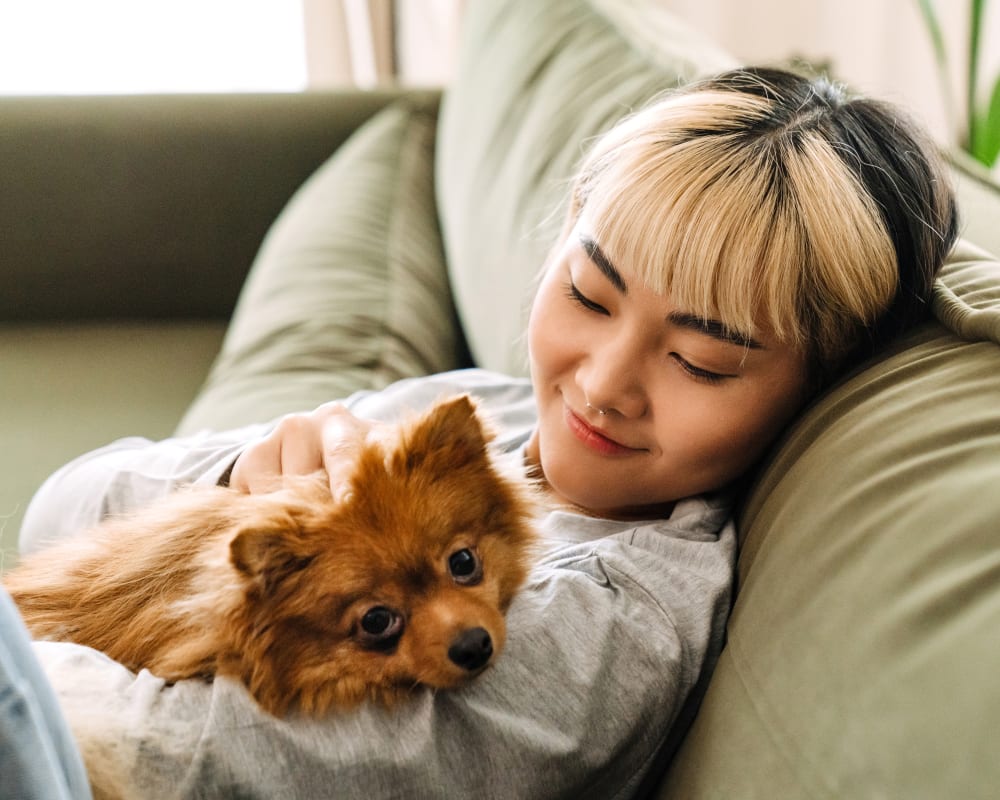Spaying & Neutering
Our veterinarians encourage all pet parents to spay or neuter their pets to help reduce the homeless animal population, curb unwanted behaviours and reduce the risk of some cancers.
Keeping the Cat & Dog Population Healthy & Protected
Neutering is a surgical procedure where the testicles are removed from male pets. Spaying removes a female pet's reproductive organs. These surgeries prevent your male cat or dog from fathering offspring or your female cat or dog from becoming pregnant.
The importance of spaying and neutering your cats and dogs cannot be understated. These surgical procedures prevent shelters from becoming overrun with unwanted dogs and cats. Pets who are spayed or neutered are also less likely to develop certain cancers, and they may not exhibit undesirable behaviours such as spraying or aggression.

When to Spay or Neuter Your Cat or Dog
No one understands your pet's health better than your veterinarian. Although we provide general spay and neuter age guidelines below, it is always best to consult your veterinarian.
Cats: We recommend spaying or neutering cats at six months of age. This allows them to get to their relative adult size and make sure they can safely metabolize anesthetic agents.
Dogs: Puppies can be spayed or neutered safely at six months of age or older. That said, a number of veterinarians have concluded that for some breeds it is better to wait until the dog reaches maturity before performing these reproductive surgeries. Speak to your veterinarian to determine the best time to have your dog spayed or neutered.
Spaying & Neutering FAQs
To learn more about spay and neuter procedures at our hospital, please read through the answers to these frequently asked questions from our clients.
New Patients Welcome
Lady Hammond Animal Hospital is accepting new patients from across the Halifax Regional Municipality! We'd love to welcome you and your cat or dog into our veterinary family. Get in touch to book your companion's first appointment.

